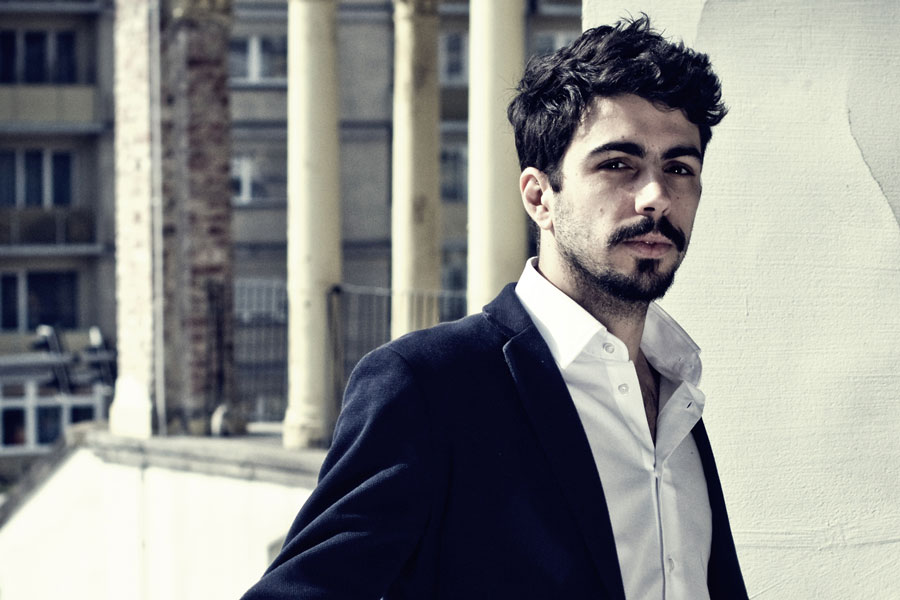João de Sousa is a vocalist, songwriter and guitarist from Porto, Portugal. He has collaborated with the Mikromusic ensemble, Smolik, Ariel Ramirez Tango Quartet and João ‘Rocks.’ His project entitled Joao de Sousa & Fado Polaco released an album in 2012. João de Sousa’s vision for Fado Polaco was to mix traditional and modern fado, jazz, flamenco, and Portuguese folklore with African and Arab influences. Since its release de Sousa has performed fado and world music concerts throughout Poland, Germany, and Italy.
Fado music is a form of dramatic singing that originated in the 1820’s in Portugal. The word Fado comes from the Latin word fatum, relating to the English word fate. This music is described by the Portuguese word saudade, which means longing. Most of the repertoire follows a duple metre with a text arranged in any of several common Portuguese poetic forms. Until the mid-20th century, many Fado performances featured a significant improvisation. Fado is often accompanied by one or two 12 string guitars, one or two violas, and sometimes a small 8 string, bass. There are two distinct styles, the older of which is associated with the city of Lisbon and the younger with the city of Coimbra.
The Lisbon style of Fado emerged following the 1822 return to Portugal of the Portuguese government, which had been removed to Brazil during the Napoleonic Wars. It arose in the city’s Alfama district, a socially and economically marginalized area that was a nexus of Iberian, South American, predominantly Brazilian, and African inhabitants. In the early 1900’s, it found a popular following that continues to thrive in the modern era. Fado experienced some difficulties in 1926 when censorship caused major changes to urban entertainment and placed hefty requirements on shows and venues. However, the popularity of radio placed Fado in homes across the country.
Coimbra Fado is linked to academic traditions of the University of Coimbra. While the Lisbon style appealed to those in the working-class, Coimbra magnetized the privileged classes and was typically performed by men. Cultivated in cafés by college students and university faculty, the Coimbra style drew from the city’s literary tradition, as well as from bel canto singing and diverse musical styles brought by students from various regions. The Coimbra style inspired hope, whilst the Lisbon style expressed surrender. Other distinctive features of the Coimbra style included a lack of improvisation, with performances typically rehearsed, and the elevation of the guitarras and violas to a position of prominence rather than a strictly accompanimental role.
In the late 1890s and the early decades of the 20th century, Fado was commonplace on the vaudeville stage. In the late 1930s, Alfama native, Amália Rodrigues enjoyed renowned popularity for her passionate performances and thus thrust the Lisbon style in new directions, incorporating Spanish and Mexican rhythms and enlisting contemporary poets to compose lyrics. Toward the middle of the century, Fado took a “folkloric” turn, becoming a self-conscious representative of Portuguese culture. Fado was added to UNESCO’s Intangible Cultural Heritage on November 27, 2011.
Alixandra Porembski, English Language Annotator

